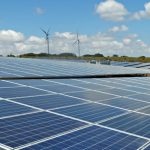Thermal power has had its day in India, the head of a national PV trade body has claimed after the Solar Energy Corporation of India (SECI) concluded what it called the world’s largest renewables-plus-energy-storage capacity tender.
The procurement exercise was held to contract 1.2 GW of capacity in the form of assured supply of 600 MW of clean power for six hours daily during peak demand hours – 5.30-9.30am and 5.30pm-12.30am – on a day-ahead, on-demand basis. The successful bids comprised at least 3 GWh of energy storage capacity – pumped hydro or battery storage – plus associated clean energy generation assets.
The tender was staged to secure reliable, fixed-price energy supply for state electricity distribution companies otherwise hidebound to the vagaries of spot markets.
The procurement round was oversubscribed, with bids received for 1.62 GW of capacity and Hyderabad-based developer Greenko secured 900 MW of pumped-storage project capacity with the most competitive tariff bid for the clean energy to be supplied. Greenko offered a weighted average tariff of Rs4.04/kWh and a quoted peak tariff of Rs6.12/kWh.
Haryana-based ReNew Power secured the remaining 300 MW of capacity with a weighted average bid of Rs4.30 and quoted peak price of Rs6.85, marking a world record for renewables-plus-battery storage capacity.
For the renewable energy supplied during off-peak hours, SECI will pay a pre-specified tariff of Rs2.88/KWh. The tariffs granted will be paid over a 25-year period.
The Indian government has mandated all electricity distribution companies to source at least 21% of their energy from renewables by 2021-22 and has said grid operators will not incur transmission charges or losses on clean power.
“With this, thermal power in India has become priced out,” said Pranav R Mehta, chairman of the National Solar Energy Federation of India. “The most recent thermal power tenders in the country have yielded levelized tariffs in the range of Rs5-7/kWh ($0.0694-0.0972) at 85% annual PLF [plant load factor – a measurement of the output of a power plant compared to its maximum generation capacity]. The peak tariff under this SECI tender is highly competitive vis-à-vis the recent peak tariffs in international markets like [the] USA (Rs8-9/kWh or $0.1111-0.125).
“This is also lower than the recent stressed thermal projects tender conducted by [state-owned power trading company] PTC, where the tariff discovered was Rs4.24/kWh ($0.0589) for only [a] three-year supply [contract], whereas the tariff discovered under this tender is fixed for 25 years.
“With the peak time-of-day tariffs becoming more and more pronounced in India, these discovered tariffs will be value accretive for DISCOMs [electricity distribution companies], and are already much lower than the ever-increasing commercial and industrial consumer tariffs in India.”





